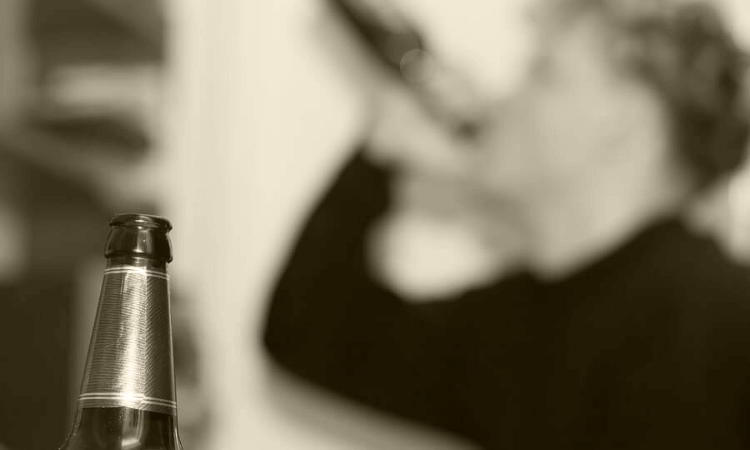
It is not always easy to identify an alcohol problem in a loved one. People with addiction issues can become masters at concealing and denying the severity of their addictive behavior.
One of the main signs of a severe problem is hiding alcohol. Not only will the alcoholic drink covertly, but they will also frequently have secret hiding spots for alcohol. In some cases, these may be nearly impossible to find, but there are some common places that many alcoholics regularly go to for concealment.
Hiding Alcohol
Popular hiding places are bathroom cabinets and shelves, basements, closets, clothes, bags, and suitcases. They may also hide alcohol in kitchen cabinets or drawers behind or in other items such as cans, boxes, or jars. You may find empty or full bottles under furniture or stuffed between the cushions. Outdoors is also an option; under porches or in a garage or shed.
The important thing is to find the alcohol before the loved one realizes you are looking for it. If the person knows that you are on to him or her, he or she may switch to hiding spots that are even more difficult to locate.
Warning Signs of Alcohol Addiction
The following are 12 more signs that indicate a secret alcohol addict:
Secret Drinking
Drinking alone, especially when keeping this a secret from family and friends shows that the person realizes that their behavior is not normal and that others may criticize them for it. It’s a subtle admission of right versus wrong, and the person may not even realize they are doing it.
Look for telltale signs of being “buzzed” or under the influence, even though you did not actually see this person drink. Or, they may appear to drink very little in comparison to how intoxicated they appear. In other words, they have been drinking more than they have been revealing.
Missing or Being Late for Important Events or Occasions
The person will be absent from, or late to school, work, family functions, etc. They may more or less disappear for several days or insist that they were doing something or were somewhere they were not.
Many of these effects are noticeably similar to those associated with the use of muscle relaxers. This similarity of effects is the main reason why it is so risky to mix these substances, as it results in an intensification of CNS depression.
Making Excuses
Alcoholics frequently make excuses for their drinking. Reasons may involve serious issues such as mental illness, or merely day-to-day stress or chronic pain. They may blame those around them for having to deal with relationship strain—especially that which directly results from their drinking.
Drinking at Inappropriate Times
Drinking in the morning or upon first waking and needing “the hair of the dog” may speak to their level of dependency and desire to avoid a hangover or withdrawal symptoms. But, drinking may occur for seemingly no reason at random times throughout the day.
Alcoholics often drink in situations that they should not. These situations might include drinking while at work, school, or family functions, while operating a motor vehicle, or at any time or place that it isn’t socially accepted.
Isolation and Loss of Interest
As alcohol becomes an increasing obsession for the alcoholic, they often begin to ignore other parts of their life. They may avoid people to conceal their drinking, or neglect to attend events or gatherings with family and friends. The alcoholic may also become disinterested in activities they once enjoyed or considered important, such as sports or hobbies.

Mood Swings
Alcohol abuse and withdrawal symptoms affect a person’s mood, thoughts, and behaviors. Alcoholics are notoriously unstable emotionally. Extreme mood swings are common, and a person may suddenly go from happy to unreasonably angry or sad. Hardcore alcoholics often experience personality changes when they are drinking, and crying jags or episodes of verbal or physical abuse toward others may occur.
Physical Symptoms
Signs of alcohol intoxication are an obvious giveaway, but these are not always apparent. Severe alcoholics may have a higher tolerance and may only appear somewhat intoxicated at levels that would make others look absolutely inebriated. They may be mostly functional and exhibit only mild signs such as unusual talkativeness, slightly slurred speech, flushing of the skin, and bloodshot eyes.
Withdrawal symptoms can occur hours to days after a person has stopped drinking. As such, he or she may appear shaky, sweaty, and agitated or depressed.
Severe alcoholics may also present as unkempt, unclean, or disheveled. This is a sign that they are so focused on being intoxicated that they are neglecting routine personal care, such as bathing, eating properly, etc.
Memory Loss and Blackouts or “Brownouts”
Alcohol impairs a person’s short-term memory. Someone having a blackout or brownout (partial loss of memory) will not remember the things they did or events that happened while they were intoxicated.
Obsession With Alcohol
An alcoholic will obsess over obtaining and consuming alcohol. The person may try to seem patient, but often, it’s clear that they are agitated because they can’t drink at any given time. Most alcoholics are silently plotting the next time they will be able to have more alcohol.
An obsession with alcohol causes a constant mental preoccupation that can very easily damage intimate personal relationships. Furthermore, an alcoholic may rush through activities haphazardly to make time for drinking, rather than enjoying their time being sober and engaging with loved ones.
Drinking Rapidly or Chugging
Alcoholics will often quickly drink or “chug” their first few drinks. They will do this because they are seeking to get intoxicated rapidly, or perhaps because their tolerance is so high they feel like they need a head start. It may also be used as a way to evade withdrawal symptoms. Some will chug a few drinks then go on with their day as if it were completely normal

Drinking Rituals
The person is always drinking at certain times of the day, such as after getting home from work or at bedtime, or in certain places. The hallmark of an alcoholic is that they feel that they need to engage in their drinking ritual, and will likely become upset or stressed out when they are unable to do so.
Missing Money or Valuables and Spending Excessively
Addiction is usually expensive. The addict may purchase cheap alcohol, but ultimately, it adds up. He or she will spend way too much money on drinking, to the extent that they may become financially stressed. They may then steal items, borrow money, or generally begin to hassle others to help them obtain alcohol.
While no one behavior indicates someone is an alcoholic for sure, the presence of several of them is collectively a powerful sign that this person has a very severe problem. Some of these signs may be subtle; others are more obvious. In any case, if you witness this behavior, your loved one likely has a dependence or addiction to alcohol.
Getting Help for Alcoholism
Alcoholism is a chronic, lifelong disease that does not go away, but fortunately, it can be treated effectively. If you suspect that you or someone you love has a problem with alcohol abuse, contact us today. Recovery in Tune offers a comprehensive, evidence-based approach to alcoholism that includes services essential for the process of recovery.
These include, but are not limited to, the following:
- Behavioral therapy
- Individual and family counseling
- Substance abuse education
- Health and wellness education
- Medication-assisted treatment
- Aftercare planning
Our skilled and compassionate staff are dedicated to providing our clients with the tools they need to break free from the chains of alcohol addiction once and for all! You don’t have to suffer any longer—professional help is available now!